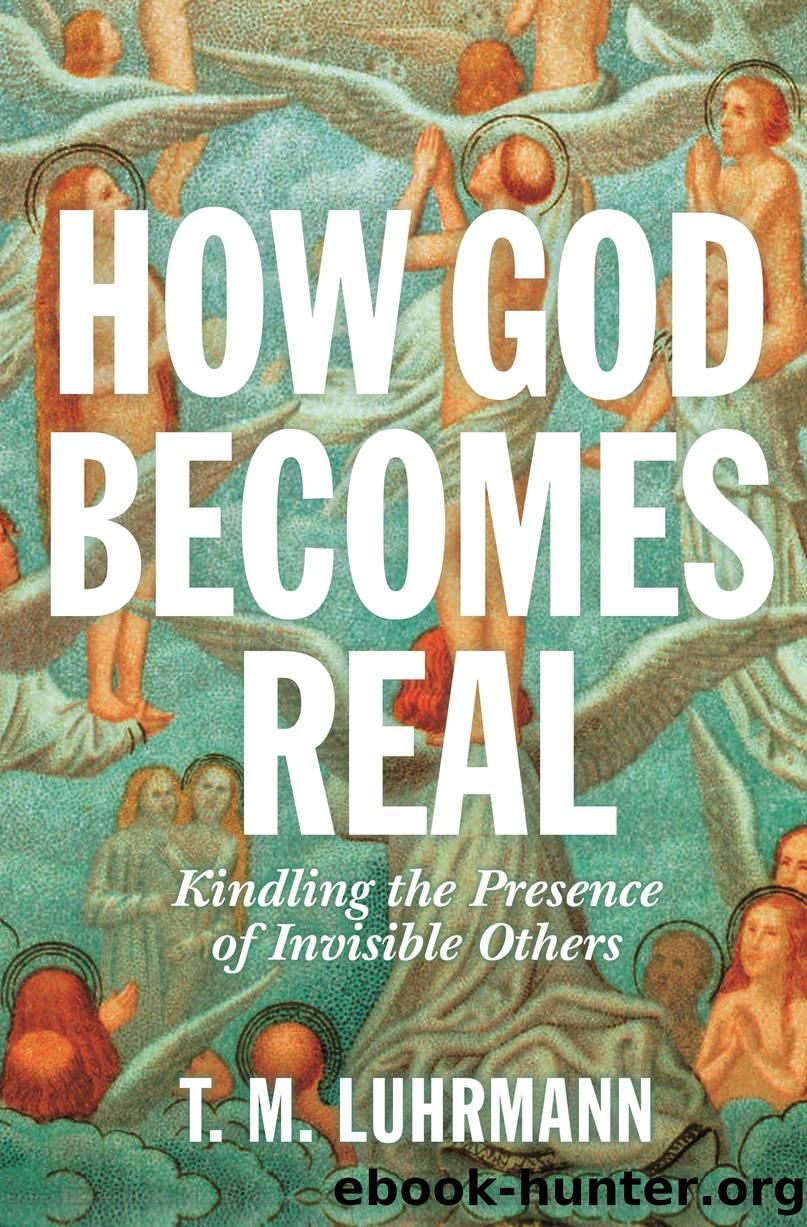How God Becomes Real by T.M. Luhrmann

Author:T.M. Luhrmann
Language: eng
Format: epub
Publisher: Princeton University Press
Published: 2020-08-17T00:00:00+00:00
Most generally, any spiritual experience will reflect both bodily vulnerability (from the bodyâs genetic inheritance and the bodyâs history) and cultural expectation. Their interaction creates specific patterns of events that become more habituated and fluent over time. The process of kindling changes the events.
To be clear, the most general mechanism at work here is the effect of prior expectation. Expectations are at the core of many foundational theories of cognition. For example, in Bayesian reasoning a personâs understanding of a new event is taken to be firmly grounded in his or her prior beliefs about the likelihood of various possible events. These days, neuroscientists describe the role of expectation as âpredictive coding.â The brain is more likely to sense and experience what it expects to sense and experience (Friston 2010). Yet expectation is not everything. I am motivated here by my observation that any given community can have relatively homogenous ideas about the supernatural and more or less shared expectationsâand still individuals within that community can have quite different experiences of the supernatural. My goal here is to add some specificity by exploring the ways expectation, practice, and bodily process interact. I want to point out that different kinds of events are affected by expectation in different ways. If some phenomenon doesnât require a specific bodily event, expectation is everything. But expectation shifts the dial less for ordinary bodily events like crying, and even less so for extraordinary events like sleep paralysis.
This theory has specific implications. In a Christian social world that recognizes the presence of God through any kind of emotional or bodily response to scripture, everyone should report that he or she has heard God speak though the Bible because what counts as evidence is so loosely defined. In the evangelical church I studied, people said that they knew God was speaking to them through the Bible when a passage âgrabbed at their heart,â âwould not let them go,â or âstuck in their mind.â God was understood to be communicating when, as one congregant put it, âa verse just jumps out at me.â It seemed to me that people could pay attention to any kind of powerful bodily or emotional feeling and identify it as the cause of those wordsâpeace, intense joy, sudden sleepiness. Here is one congregant:
All of a sudden, I was in the Book of Isaiah.⦠I felt that the Spirit was leading me.⦠I started reading about what the chosen fast was, which was to break the bonds of wickedness. And something about it made me think about my family members and how I wanted to pray for my family members. Like that was the answer for me. I really felt that God brought me to that Scripture and that this is where I need to be.⦠It was just such an amazing thing. It was like two oâclock in the morning, and I remember reading it wide awake, and as soon as I read that it was a relief, and then I felt really sleepy.
Download
This site does not store any files on its server. We only index and link to content provided by other sites. Please contact the content providers to delete copyright contents if any and email us, we'll remove relevant links or contents immediately.
| Clergy | Devotionals |
| Faith | Inspirational |
| Meditations | Monasticism & Asceticism |
| Prayer | Prayerbooks |
| Ritual | Sermons |
The Secret Power of Speaking God's Word by Joyce Meyer(3220)
More Language of Letting Go: 366 New Daily Meditations by Melody Beattie(3030)
The Holy Spirit by Billy Graham(2952)
To Light a Sacred Flame by Silver RavenWolf(2823)
Tuesdays With Morrie by Mitch Albom(2762)
The Lost Art of Good Conversation by Sakyong Mipham(2654)
The Traveler's Gift by Andy Andrews(2461)
Kundalini by Gopi Krishna(2184)
A Kingsbury Collection by Karen Kingsbury(2105)
Anxious for Nothing by Max Lucado(1975)
Angels of God: The Bible, the Church and the Heavenly Hosts by Mike Aquilina(1969)
Finding Chika by Mitch Albom(1968)
Angels by Billy Graham(1926)
As a Man Thinketh by James Allen(1902)
The Yoga of Jesus: Understanding the Hidden Teachings of the Gospels by Paramahansa Yogananda(1862)
Curse Tablets and Binding Spells from the Ancient World by Gager John G.;(1861)
Autobiography of a Yogi (Complete Edition) by Yogananda Paramahansa(1827)
Barking to the Choir by Gregory Boyle(1821)
How To Be Born Again by Billy Graham(1782)
